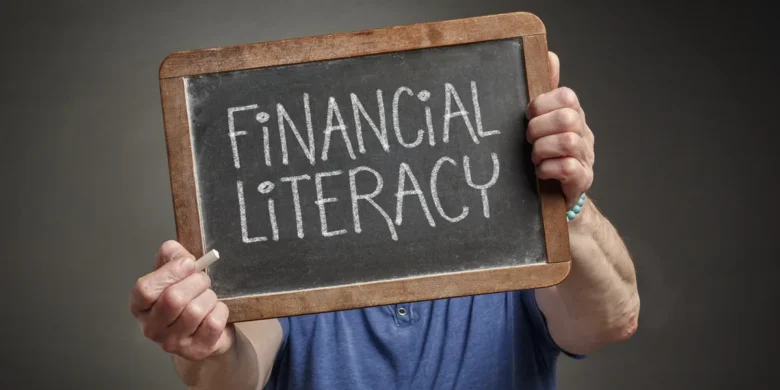One of the most useful skills anyone can learn is managing money. Yet, this skill isn’t often taught in school or used in everyday life. Learning the basics of money management may seem daunting at first, but it doesn’t have to be. Financial literacy involves understanding how money works and how to make smart choices about spending, saving, borrowing, and investing. Being financially literate gives you the confidence to manage your money wisely and prepare for both planned and unplanned life events. The first step toward taking control of your financial future is learning how to manage your money.
Why Understanding Money Matters
Financial literacy is crucial because it affects almost every aspect of life. How you use your money can impact your future stability and opportunities, from paying bills to saving for retirement. Many people fall into debt, overspend, or undersave because they don’t know how to manage their money. On the other hand, people who understand their finances can create a budget, pay off debt, and save for emergencies or long-term goals. This information is more than just numbers; it can give you greater financial security, leading to a healthier and less stressful life.
Tracking Your Income and Expenses
One of the first things you need to learn about money is how to track your income and expenses. Understanding your monthly income and expenses is crucial. Many people don’t realize how quickly small expenses can add up, but tracking them helps you stay on top of your spending. You can use a notebook, spreadsheet, or budgeting tool to track your cash flow and identify areas where you can save money and spend more. Without this insight, it’s easy to lose track of your finances and fall into debt.
Understand the Importance of a Budget
A budget is an essential part of smart money management. A budget is simply a plan that helps you track your money and how you spend it. For beginners, creating a modest monthly budget can help them stay organized, ensure they pay their bills on time, and save money. Budgeting doesn’t mean you can’t spend money; it simply ensures you spend on the things that matter most to you. Sticking to a budget can help you avoid financial stress, reduce unnecessary expenses, and more easily achieve your short-term and long-term goals.
Building an Emergency Fund
Building an emergency fund is another important step in learning to manage your finances. Life is full of unexpected events; things like car repairs, medical expenses, or job loss can jeopardize your financial security. An emergency fund acts as a safety net, preventing you from having to use credit cards or take out loans during difficult times. For beginners, starting with just a few hundred dollars can make a big difference. Over time, aim to save three to six months’ worth of living expenses in this fund. An emergency fund gives you peace of mind, allowing you to focus on achieving other financial goals without worrying about setbacks.
Understanding Credit and Debt
Many beginners struggle with credit and debt because they don’t fully understand them. If you use credit wisely, it can be a valuable tool. Otherwise, it can become a burden. Financial literacy teaches you how credit scores work, how interest rates affect borrowing, and the importance of paying your bills on time. Understanding the difference between good debt (like a mortgage that builds equity) and bad debt (like a high-interest credit card) can help you make better borrowing choices. Knowing how to manage debt responsibly can protect your financial health and minimize stress in the long run.
Why Saving Early Is Important
One of the best lessons in financial literacy for beginners is the importance of saving early. Saving isn’t just about setting aside money; it’s about developing habits that help you meet your future needs and wants. Even small amounts saved regularly can add up to a significant fortune over time, especially with the help of compound interest. Starting to invest early is a significant advantage for young people because it gives their money more time to grow. You can use your savings for emergencies, major expenses, or long-term goals like retirement. The sooner you start, the easier it will be to manage your finances.
Basics of Investing
While saving is important, investing is just as crucial if you want to build wealth gradually. Many novice investors hesitate to start investing because it’s difficult, but learning the basics is a crucial step toward financial literacy. Stocks, bonds, and mutual funds are risky investments, but they also offer greater growth potential than simple savings. Financial literacy can help beginners learn how to balance risk and return, understand the importance of diversification, and see why patience is crucial for long-term success. Even small investments can create growth paths for your money that saving alone wouldn’t.
Conclusion
Becoming financially literate is the first step toward financial independence and stability. Learning to manage money can seem daunting for beginners, but it becomes easier when you break it down into simple steps, such as tracking expenses, creating a budget, saving, understanding your credit score, and developing good habits. The more you understand, the more confident you’ll be in making financial decisions that benefit you now and in the future. Financial literacy doesn’t mean perfection; it means continuous improvement, perseverance, and focus. By taking charge of your financial education today, you’ll make your future stronger and more secure.
FAQs
1. Why should beginners understand money?
It can help people new to the world of money learn how to manage it responsibly, avoid debt, and plan for future goals, leading to financial security and self-confidence.
2. How can I learn more about money?
You can start by tracking your income and expenses, creating a simple budget, saving regularly, and reading materials that explain the basics of finance.
3. What’s the first step to learning more about money?
The first step is understanding where your money comes from and where it goes each month. Then you can start saving and creating a budget.
4. Do I need to invest to become financially smart?
Yes, understanding investment principles is part of becoming financially literate. But you can start by saving and then learn to invest as you become more proficient.
5. Does financial literacy really impact my future?
Of course. Knowing how to manage your money allows you to make smart choices. This will help you avoid costly mistakes, save more effectively, and be successful in the long run.



